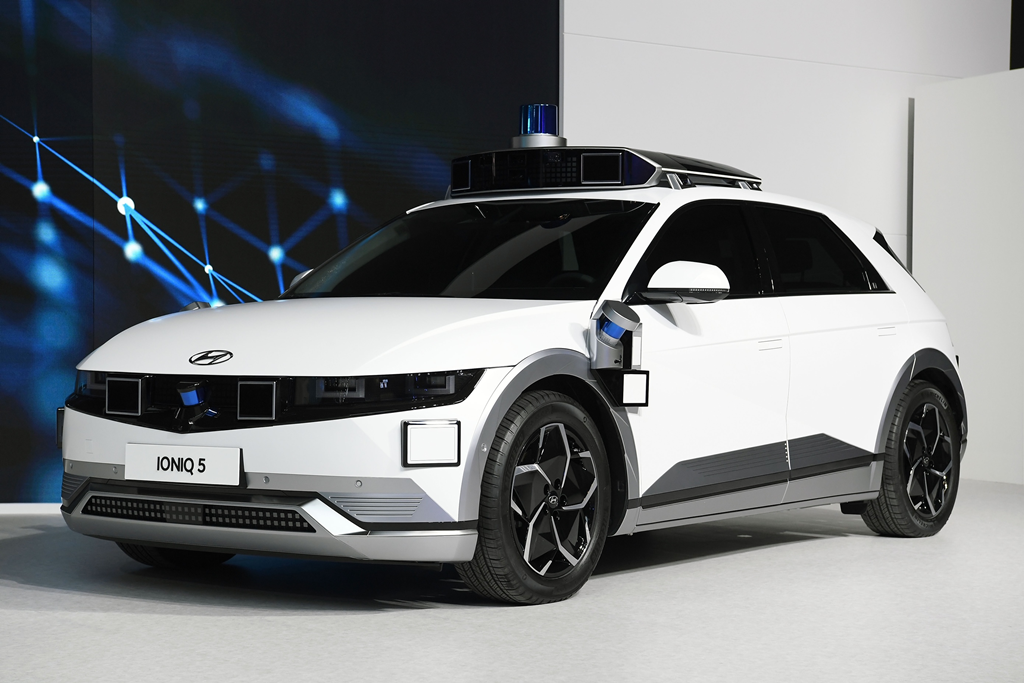In recent years, Hyundai Motor Company has made significant strides in the development and deployment of autonomous vehicle technologies. As we step into 2024, Hyundai continues to be at the forefront of the automotive industry’s autonomous revolution, pushing boundaries with advanced self-driving capabilities. This article explores the current landscape of Hyundai’s self-driving cars, highlighting key innovations, addressing challenges, and envisioning the future prospects of autonomous driving technology.
Hyundai’s Commitment to Autonomous Driving: A Strategic Overview
Hyundai’s journey into autonomous driving began with a clear strategic vision to enhance safety, improve mobility, and redefine the driving experience. The company’s commitment is underscored by substantial investments in research and development, partnerships with tech giants, and rigorous testing protocols.
Investments and Partnerships
Hyundai has invested billions of dollars into autonomous vehicle research and development. This financial commitment has enabled the company to establish itself as a serious contender in the global race towards fully autonomous driving.
- Financial Investments: In 2023 alone, Hyundai allocated over $2.5 billion towards autonomous vehicle technologies, signaling its intent to dominate this emerging market segment.
- Strategic Partnerships: Collaborations with leading tech firms such as NVIDIA and Qualcomm have empowered Hyundai to integrate cutting-edge AI and connectivity solutions into their self-driving platforms.
R&D Breakthroughs
Hyundai’s research and development efforts have yielded significant breakthroughs in autonomous driving technology. These advancements are not only enhancing vehicle safety but also expanding the scope of autonomous capabilities.
- Sensor Fusion Technologies: Integration of radar, lidar, and camera sensors enables Hyundai’s autonomous vehicles to perceive their surroundings with unparalleled accuracy.
- AI and Machine Learning: Deep learning algorithms allow Hyundai cars to continuously learn from real-world driving data, improving decision-making and adaptability in diverse environments.
Hyundai’s Autonomous Vehicle Lineup in 2024
As of 2024, Hyundai offers a diverse range of autonomous vehicles designed to cater to various consumer needs and market segments. From luxury sedans to compact SUVs, Hyundai’s autonomous lineup exemplifies versatility and technological prowess.
Models and Features
- Hyundai Ioniq 5 Autonomous: A compact electric SUV equipped with level 3 autonomous capabilities, featuring Hyundai’s proprietary SmartSense ADAS (Advanced Driver Assistance System).
- Hyundai Genesis GV80 Autonomous: A luxury SUV with level 4 autonomy, showcasing Hyundai’s commitment to blending luxury with cutting-edge autonomous driving technology.
Also Read : Tech Innovation: Hyundai’s Car Technology Vision for 2024
Consumer Adoption and Market Penetration
Hyundai’s autonomous vehicles have garnered significant consumer interest and are gradually gaining market traction across regions such as North America, Europe, and Asia. Consumer surveys indicate a growing willingness to embrace autonomous technologies, driven by perceived safety benefits and convenience.
- Market Penetration: In key markets like California and South Korea, Hyundai’s autonomous vehicles are undergoing pilot programs and early adopter initiatives to gather real-world performance data and consumer feedback.
- Consumer Acceptance: Surveys conducted among early adopters reveal a high satisfaction rate with Hyundai’s autonomous driving capabilities, particularly praising the smooth integration of AI and intuitive user interfaces.
Challenges and Considerations in Autonomous Driving
Despite the promising advancements, the journey towards fully autonomous driving is not without its challenges. Hyundai, like other automakers, faces several hurdles that must be addressed to ensure the widespread adoption and success of autonomous vehicles.
Regulatory Landscape
Regulatory frameworks governing autonomous driving vary significantly across jurisdictions, posing a challenge to global deployment efforts. Hyundai actively engages with policymakers and regulatory bodies to advocate for standardized safety protocols and legal frameworks conducive to autonomous vehicle operations.
Technical Limitations
- Environmental Variability: Autonomous driving systems must contend with unpredictable environmental factors such as inclement weather, road construction, and erratic driver behavior.
- Edge Case Scenarios: Rare and complex driving scenarios require robust AI algorithms capable of making split-second decisions to ensure passenger safety and operational efficiency.
Public Perception and Trust
Building public trust in autonomous vehicles remains a critical challenge for Hyundai and the automotive industry at large. Perception gaps regarding safety, reliability, and data privacy must be addressed through transparency, education campaigns, and rigorous safety testing protocols.
The Future of Hyundai Autonomous Driving: Roadmap to 2030
Looking ahead, Hyundai has outlined an ambitious roadmap for autonomous driving technologies, setting strategic goals and milestones aimed at transforming the mobility landscape by 2030.
Expansion of Autonomous Fleet
Hyundai plans to expand its autonomous vehicle lineup to include a broader range of models catering to both personal and commercial transportation needs. This expansion will leverage advancements in electric vehicle platforms and AI-driven autonomous systems.
Global Deployment Initiatives
- North America: Strategic partnerships with ride-hailing companies and fleet operators aim to deploy autonomous Hyundai vehicles for urban mobility solutions.
- Europe: Collaborations with municipal authorities and smart city initiatives focus on integrating Hyundai’s autonomous technology into public transportation networks.
Technological Advancements
- 5G Connectivity: Integration of 5G networks will enhance real-time communication capabilities, enabling faster data transmission and seamless vehicle-to-everything (V2X) connectivity.
- AI Integration: Continued advancements in AI algorithms will bolster autonomous decision-making capabilities, enabling Hyundai vehicles to navigate complex urban environments and anticipate potential hazards.
Conclusion
In conclusion, Hyundai’s commitment to autonomous driving in 2024 and beyond underscores its role as a pioneering force in the automotive industry. Through strategic investments, technological innovations, and consumer-centric initiatives, Hyundai is poised to redefine the future of mobility, offering safer, more efficient, and sustainable transportation solutions. While challenges persist, Hyundai’s steadfast dedication to overcoming obstacles and seizing opportunities ensures a promising trajectory towards a fully autonomous driving future.
This article provides a comprehensive overview of Hyundai’s advancements in self-driving cars for 2024, covering key aspects such as technology, market strategy, challenges, and future outlook.
(source)
Originally posted 2024-07-11 07:19:18.
